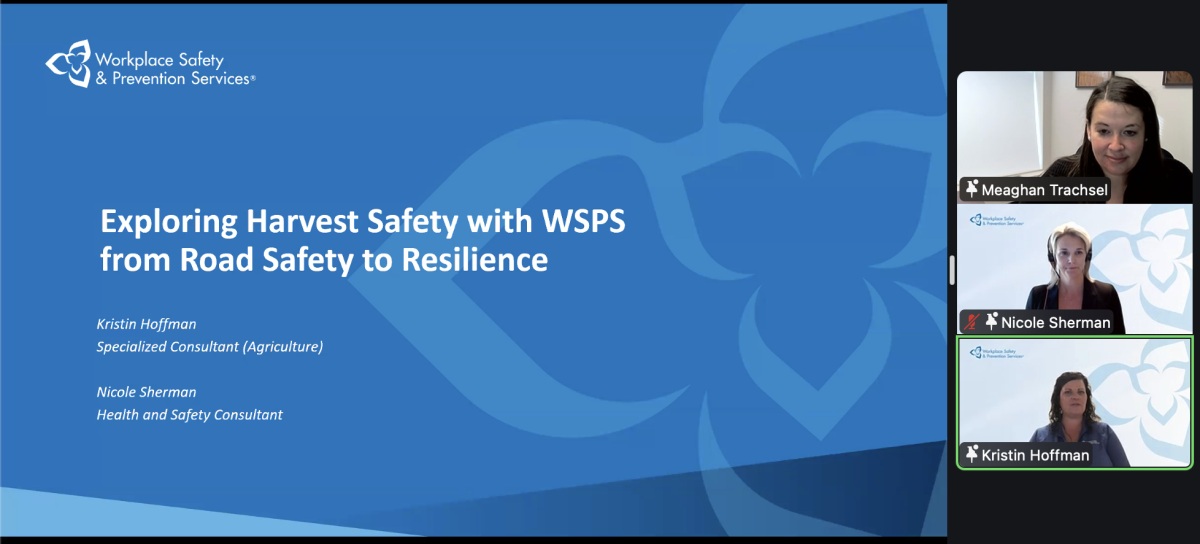A country such as Canada that’s strategically positioned as a meat exporter should re-think its devotion to ethanol, the George Morris Centre warns in a new report.
The Guelph-based agri-food industry think tank on Tuesday released a review of federal and provincial supports for grain-based ethanol, in the context of broader Canadian public policy. The report said Canada’s current plans to develop ethanol are far from strategic, given their effect so far on the country’s beef and pork sectors.
“Just because the U.S. is developing ethanol does not mean Canada should,” senior research fellow Al Mussell and senior research associate Larry Martin wrote in the report. Not only do the two countries have different public policy issues at stake, but “it looks more and more like the U.S. policy is just bad policy, so one sees little reason to emulate it.”
Read Also

Exploring Harvest Safety
Kristin Hoffman of WSPS explains measures for increased farm safety around harvest season
Considering the rationales the U.S. has cited for ethanol supports, Mussell and Martin write that the idea of Canada, a net exporter of oil, needing ethanol to wean itself from foreign oil dependence can be “immediately rejected as absurd.”
As for the other two main rationales, the tax dollars needed to build an ethanol sector that would drive up grain prices further would be “staggering,” and the environmental benefits of ethanol are “just too modest to be taken very seriously,” especially considering the costs.
Canada would be better suited to develop its own biofuel strategy, and work within its existing farm policy rather than try to drive ethanol as a solution to jack up commodity prices and cut greenhouse gas emissions, the researchers write.
Specifically, Canada should look to assist the livestock and meat industry with their current problems and renew investment to help the industry recapture its “historic competitive advantage rather than by exacerbating the industry’s problems with policies that further drive up feed costs.”
To deal with the environmental issues that grain-based ethanol was supposed to address, Canada would do better to focus on innovation, such as more fuel-efficient engines or biofuels produced from cellulose or other crops “not injurious to our strategy as a meat exporter.”
The Canadian Renewable Fuels Association, responding to the centre’s report, retorted Wednesday that it “is not a study on Canadian ethanol; it is a study on the meat industry in Canada.” The report lobbies for aid for the meat industry and offers no new research on ethanol in Canada, the CRFA said.
The association noted that oil is about to reach $100 a barrel and Canada thus needs “more energy diversity, not less.”
The CRFA also stressed that the biofuels industry is “good for rural Canada,” providing a new market for over 200 million bushels of Canadian wheat, corn and oilseeds and over 14,000 new jobs in rural communities as 20 new biofuel facilities come online.
As the U.S. harvests a historically large corn crop and corn prices have pulled well back from last summer’s highs, “we are now witnessing the long overdue backlash against grain-based ethanol,” the George Morris Centre report notes.
While most of the criticism against ethanol has been written from a U.S. or international perspective, the issues surrounding ethanol — excessive subsidies, marginal energy efficiency and effects on greenhouse gas emissions, overconsumption of fresh water for production, food price inflation, collapsing profit margins — are the same everywhere, Mussell and Martin write.
“However, little has been written about Canada’s ‘me too’ ethanol policy.”














